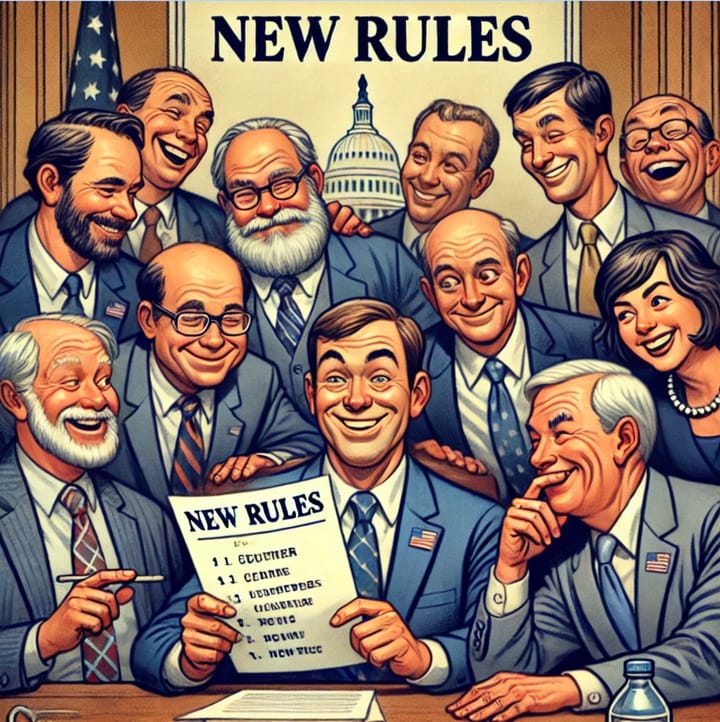Cheryl Brown
Behind Closed Doors: The Rush to Appoint Cheryl Brown to the Williamson County Commission
Williamson County Commissioner Meghan Guffey plans to nominate Cheryl Brown for the D10 seat with little public notice. Critics cite Brown’s controversial tenure as GOP Chair, financial concerns, and past efforts to silence the public.

Originally published on July 8th, 2024
Tonight, at the Williamson County Commission meeting, District 10’s remaining commissioner, Meghan Guffey, is set to nominate former Williamson County GOP Chair Cheryl Brown for the vacant D10 seat. This move comes with virtually no public notice, leaving constituents with little opportunity to raise concerns, offer comments, or propose their own nominees.
According to the meeting agenda, Brown’s nomination will be presented alongside other county vacancy nominations. However, state law dictates a process for filling such vacancies, requiring that the public be given a chance to submit names before the commission votes or even considers a nomination.
Legal Requirements Ignored?
Tennessee law states: “Before the county legislative body votes or considers any motion or resolution regarding the office to be filled, the chair shall allow registered voters of the county an opportunity to submit names... Names may be submitted in writing prior to the meeting or in person at the meeting. For a name to be considered, a member of the county legislative body must subsequently nominate the person.”
While the law does allow the commission to nominate a candidate directly, this clause follows the expectation that the public has first been given sufficient notice and a chance to act. The term “adequate public notice” is not strictly defined but typically involves publishing in a local newspaper with a reasonable timeframe for public response. The law permits up to 120 days to fill a vacancy—so why the rush? Why was no formal public notice issued?
Aside from a brief mention in the meeting agenda on the county’s website, there has been no widespread announcement regarding Brown’s nomination.
A Pattern of Sidestepping the Public?
This wouldn’t be the first time a D10 commissioner was nominated and sworn in without public engagement. In May 2021, Guffey herself was appointed to the commission in a nearly identical manner. Nominated by then-Commissioner David Landrum (whose seat she now seeks to fill with Brown), Guffey was immediately sworn in after her nomination was approved, leaving the public out of the process.
Further raising eyebrows, members of the Republican Women of Williamson County (RWWC) are already celebrating Brown’s appointment as if it’s a done deal. RWWC President Debbie Ballard announced:
“CONGRATULATIONS to RWWC member and friend Cheryl Brown who will be appointed as a Williamson County Commissioner for District 10 on Monday, July 8th at 7 PM at the Williamson Administrative Building.”
If Brown’s appointment is already being treated as certain, what does that say about the legitimacy of tonight’s vote?
A Troubling Record as GOP Chair
Brown’s tenure as Williamson County GOP Chair was marked by controversy, culminating in what state GOP Chair Scott Golden called “the largest reorganization effort in state history.” In April of last year, over 600 Williamson County Republicans gathered to oust Brown and her leadership team, an unprecedented number compared to the previous record of 200 attendees.
The driving force behind this overhaul? Concerns about financial transparency and ethics under Brown’s leadership. According to Williamson County Republican Party (WCRP) bylaws, any expenditure over $2,000 requires full Executive Committee approval. Yet, reports indicate that Brown frequently directed funds under this threshold without oversight, requiring only the co-signature of an ally she handpicked.
Financial records from WCRP’s PAC Report show Brown’s questionable spending decisions, including:
- $5,800 paid to Pale Horse Security, a private firm owned by Aaron Spradlin—who has a history of deceptive business practices related to PPE procurement.
- Unexplained checks written to individuals with no listed purpose or affiliation.
- An excessive $8,600 spent on insurance for party officers—ten times the typical cost.
- Use of donor funds for personal security and a paid driver.
While there are no allegations of illegal activity, critics argue that Brown’s handling of finances was, at best, ethically questionable. Now, as a prospective county commissioner, she would be responsible for managing hundreds of millions in taxpayer dollars.
A History of Silencing the Public
Concerns about Brown extend beyond financial management. On June 21, 2022, during an open Williamson County GOP meeting, Brown’s assistant, Kilynn Schueler, called 911 to request law enforcement assistance in removing attendees who expected to be admitted.
During the call, Schueler stated, “Several people are demanding entrance to our meeting, and they won’t go away.” When asked if there was any violence or weapons involved, she confirmed that the issue was merely that citizens were insisting on attending what was supposed to be a public meeting.
Critics argue this raises red flags regarding Brown’s ability to serve on a commission where public input—often critical—is a routine part of governance.
What’s Next?
The Williamson County Commission meeting takes place tonight at 7:00 PM at the Main Administrative Complex. Concerned constituents—particularly those in District 10—are strongly encouraged to attend and voice their opinions during the public comment session.
If transparency and public input matter in Williamson County, this appointment deserves scrutiny before it’s rubber-stamped behind closed doors.



Comments ()